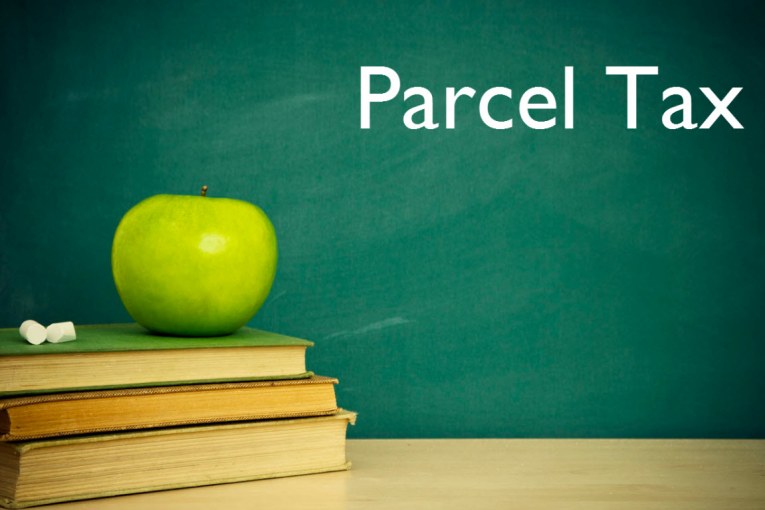

After reading the opposition campaign and letters against the Parcel Tax, my two conclusions are first, that the opposition is still pretty small. The number of pro-G letters greatly outstrips the opposition. But second – most people don’t understand the issue and how the tax system works.
Here is another example.
The writer argues: “The Davis tax paying property owners are left paying for Measure G, while the majority of citizens here in Davis pay nothing.
“We, the property tax payers, are less than 50% of the populace here in the city. Yet a majority will fail to pay their fair share and vote that we, predominately home buyers, shall foot the bill. The measure allows non-property owners to vote on Measure G for the increase and that is wrong.”
But he forgets something really important here. Prop 13 already takes care of this issue by requiring it to be a two-thirds vote. That means that it takes two of me voting yes to equal one of him voting no. And the reason for that – while I disagree with it – is to address the very issue he raises – the fact that some people pay the tax and others don’t.
Next he adds: “An equitable Measure would be to raise the sales tax.”
Absolutely. A more equitable Measure would be to raise the sales tax. There is only one problem. They can’t.
Once again, the problem here is Prop 13. California is the only state in the country that uses this form of property tax to fund its schools.
The problem is that Prop. 13 “prohibits school districts from raising property taxes based on the value of property,” i.e. “ad valorem taxes.” There is an exception for General Obligation bonds, but those can only fund facilities, not instruction.
So under Prop. 13, the parcel tax has become the only way to finance instructional money for local school districts. That makes little sense – cities can finance through sales tax, TOT (transient  occupancy tax), or utility user taxes in addition to parcel taxes, but school districts can’t.
occupancy tax), or utility user taxes in addition to parcel taxes, but school districts can’t.
The letter write is wrong that a sales tax would be equitable – it’s not. Sales taxes are also considered regressive because they impact people at the bottom on the economic ladder more than those at the top because those at the bottom spend a higher percentage of their income on taxable goods.
But it would be far more equitable than a flat rate whether your house is worth $100,000 or $2 million.
The letter writer makes a further point: “once again the School Board pushes another tax, as it does not have the ability to pay teachers, so it claims. Agreed, teachers are essential public servants. Why has the district placed those needs a decade out from the original, “do you support us” call following the state and the national economic collapse?”
That paragraph is a bit convoluted, but it seems the point is that the district waited a long time to address teacher salaries. It did. But it has taken it a decade just to stabilize its operating revenue enough to even begin to address the issue.
Teachers have allowed the district to basically freeze their salaries for the last 15 years as the district has struggled to stay afoot with the economic collapse, stagnated enrollment, and the disadvantage received under LCFF.
The district has two options for dealing with these issues. One is to get the taxpayers to pay more so that we can maintain our school district and the other is to cut.
“What I disdain is this coming after me every 2-4 years for more. And the tax dollars come out of a small percentage of the citizens’ pockets. If you want to be fair and honest, you should issue the call for all to pay and pay through an increase in the sales tax.”
Again – the district can’t do that. What do you want them to do?
“We have supported Proposition 98, Governor Brown’s Proposition 30, the Lottery and a laundry list of bond measures. And we are already paying the highest taxes in the nation: sales, state and gas.”
Unfortunately it is costly run local government. And we aren’t getting enough from the state. I sympathize, but it comes down to a choice – and we don’t have the choice of going to a sales tax.
“I do not wish to be driven out of Davis because of the ever increasing taxes.”
Be honest, I don’t think an extra $20 a month in property taxes is going to drive you out of Davis.
“Measure G was a cynical attempt of the Board to exploit the goodwill of the people.”
What I watched over the last year was a very heartfelt and honest discussion – in public – over the problems we face and the alternatives we have. I wish people like this letter writer would have gone to those meetings and participated, maybe this letter would read a bit differently if he had.
—David M. Greenwald reporting


The truth is that renters will also pay this, albeit indirectly, through increased rents. If you want to live and rent in Davis, and our vacancy rates says this is a truth that seems immutable within the range of recent economic conditions, and the landlords know that all of them have seen an increase in their taxes of $20 a month, the landlords know that they can pass through the entire $20 in rents. The net cost to landlords will be $0. They are unlikely to see a perceptible decrease in the number of tenants for such an increase in rents.
So everyone who lives in town will be paying this tax in roughly equal amounts.